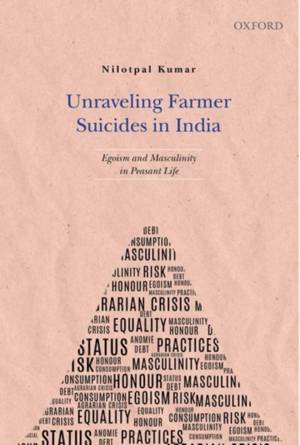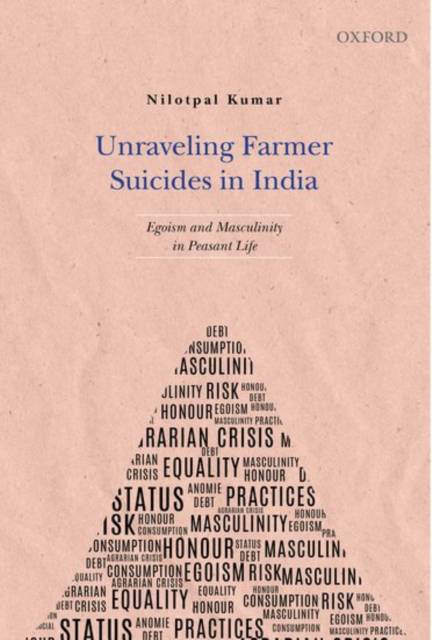
- Afhalen na 1 uur in een winkel met voorraad
- Gratis thuislevering in België vanaf € 30
- Ruim aanbod met 7 miljoen producten
- Afhalen na 1 uur in een winkel met voorraad
- Gratis thuislevering in België vanaf € 30
- Ruim aanbod met 7 miljoen producten
Zoeken
Unraveling Farmer Suicides in India
Egoism and Masculinity in Peasant Life
Nilotpal Kumar
Hardcover | Engels
€ 80,95
+ 161 punten
Omschrijving
The earliest cases of farmers' suicides in India were reported in 1998 among cotton cultivators in Andhra Pradesh. Soon after, similar reports emerged from Vidharba in Maharashtra and among red gram cultivators in Karnataka. Since then, the issue of 'farmers' suicides' has acquired disturbing proportions. This book contests the conventional notion of farmers' suicides as seen through the limited scope of agrarian economic distress. Through an ethnographic study in the district of Anantapur in Andhra Pradesh, it delves into the transformations in production, consumption, social relationship, and gender identities in present-day south India. Exploring these interconnected shifts, it interrogates the peripheral factors ascribed to farmer suicides and presents an alternative and more nuanced reality behind this grave crisis. The author contends that rural farmer suicides relate to emerging mentalities and interactions around status, equality, and honour in contemporary India.
Specificaties
Betrokkenen
- Auteur(s):
- Uitgeverij:
Inhoud
- Aantal bladzijden:
- 328
- Taal:
- Engels
Eigenschappen
- Productcode (EAN):
- 9780199466856
- Verschijningsdatum:
- 24/01/2017
- Uitvoering:
- Hardcover
- Formaat:
- Genaaid
- Afmetingen:
- 142 mm x 224 mm
- Gewicht:
- 521 g

Alleen bij Standaard Boekhandel
+ 161 punten op je klantenkaart van Standaard Boekhandel
Beoordelingen
We publiceren alleen reviews die voldoen aan de voorwaarden voor reviews. Bekijk onze voorwaarden voor reviews.











